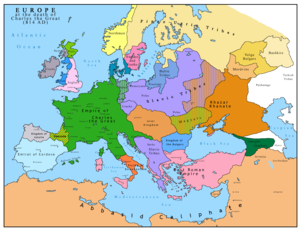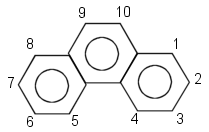There are many scientists (in Romania we use the French term "savant" in a rather sarcastic sense) in all areas of study. In fact so many in each area no one could drop one needle in there (another Romanian expression trying to describe extreme occupancy of a narrow space). There are also suspicions (from my part) that they actually cover each other in stagnation and all kinda time wasting heresies. (We saw so many useless studies and claims like about healing cancer and AIDS in the last decades while nothing really happens in reality).
Narrow specialization leads to some sort of monopoly of scientific branches over certain areas of study. The savants get so good in their field no one can even dare to say a word. They become supreme authorities and nothing can be done anymore without the approval of the leader of the clan towards whom all hosannas converge. But who knows what really happens under the curtain of specialized terms and works and barrage of biased media articles. That is how much work and progress is being made.
But how could we possibly have savants in two different areas in the same time if (artificial) competition and time needed to be each on top of his game in a certain area does not allow one to specialize in two areas which sometimes are not apparently related, like by example history and linguistics?
We have an "official science" called "History of linguistics" which as the title says, takes care of history of linguistics. Very few people would even thing about that. However much more useful would be one that would study History of Languages, not even dare to think of a branch of history named Linguistic History, or history studied from the point of view of evolution and transfer of words and languages.
Probably on the opposite side is the holistic approach. I say probably because i rarely see attempts to look at things from more than one narrow point of view so i can only imagine. With much less resources and bibliographies to read, sometimes simply putting together basic facts from two or more disciplines (which i have to admit, i've done a lot lately) reveal things that no one can even dream or maybe could have never been discovered.
We all at least in High School are though lots of basic facts from different disciplines. However there is a total lack of integration between them and forgetting all those, either after specialization in faculties or having a full life is the general idea).


So here comes the example. One simple etymology reveals and attempts to state tantalizing facts that are not (strongly) implemented in current history of countries. And confirm the whole story i wrote about so far. And reveal controversies arisen from contradictions between two sciences on the same subject. Or lack of harmonization. Or lack of integration.
"Etymology[edit]
The etymology and semantic history of the word Rus' has been a highly contentious topic, on which debate is ongoing. This is partly because of a widespread assumption that by identifying the linguistic origin of the name Rus', scholars can identify the origins of the people whom it described. This assumption has, however, been criticized in twenty-first-century scholarship.[2][3]
According to the prevalent theory, the name Rus', like the Finnish name for Sweden(Ruotsi), is derived from an Old Norse term for "the men who row" (rods-) as rowing was the main method of navigating the rivers of Eastern Europe, and that it could be linked to the Swedish coastal area of Roslagen (Rus-law) or Roden, as it was known in earlier times.[4][5] The name Rus' would then have the same origin as the Finnish and Estonian names for Sweden: Ruotsi and Rootsi.[6][7]
In absence of any other attempts Wikipedia has become the only scientific multidisciplinary integration tool we know of. Here because of the way it was designed, people of different backgrounds can write and edit articles. It is the only place where, in this case historians and linguists can come together and talk in the view of public. However there are others who are watching and interfering. Occasional politicians. Wannabe quick fixers of this upside down world.
The above section. Obviously lacking necessary level of English. This is a sign somebody with strong convictions but little refinement has written parts of it. Word scholarship is used nowadays in English mostly for financing of students and very little as describing the scientific establishment. Or maybe the statement is sarcastic.
The fact one theory has opponents however does not mean it is not true. Probably those who don't like very much the fact that Russians and Swedes have a partially common origin. And those would not be necessarily the swedes who probably don't care except if they are polarized by politicians and lunatics that can speak and write. Those who are part of the anti-Russia propaganda machine at work in western countries for at least one century. Enemies of both people or all European native people. As for Russians, they even didn't wake up yet from one century long imprisonment in their own country or space or whatever.
First. It is unclear to me what Finish are. There are claims they are related in the western hemisphere of our planet only to Hungarians. The so called ugric connection. However, since i've been studied lately extensively but on isolated issues (it's really hard to study as a whole something that doesn't seem even been put together, like histories of all countries) the history of Hungarians which by the way is again full of controversies arised by their own historian and others who looked into it, i fail to fully understand it. Could it be a pre-Magyar relationship from a simultaneous migration to the north, both coming from Mesopotamia. (Sumer).
One thing is clear so far. Finish in northern Europe are as aliens as Hungarian in central. Vaguely connected linguistically and culturally with each other, heavily influenced and influencing including genetically in the last thousand of years their reacting hosts, they lost, until recently, a strong connection with each other. (Finland influence in the whole world nowadays is enormous for such a small country, if it was to talk only about Helsinki Accords, Linus Torvalds or Nokia).
But what do you do when you have strong contradiction scientific statements made in view of public within the same field of science which is history?
https://www.google.com/search?q=finland+history
"A part of the Kingdom of Sweden from 13th century until 1809, it then became an autonomous duchy of the Russian Empire until 1917, when it declared independence." (New world order which started after WWI or earlier after Tunguska event).
First entry in this one phrase history of Finland from google is since 13th century when it is said it became part of kingdom of Sweden. Obviously, in the other page quoted above it is said that the name Rus, or Kievan Rus kingdom starting in 10th century was given possibly by the... Finish!
Not much better in Wikipedia. First written account, 12 century. Though, through linguistics, that is etymology of the word Rus, they existed and have been highly influential before 10th century.
https://en.wikipedia.org/wiki/History_of_Finland
It came at no surprise to me when i read this.
http://www.mongolia-web.com/opinion/2084-are-the-finns-the-mongolians-of-europe/
"This would also imply that Finno-Ugric languages in Finland were preceded by a North-Western Indo-European language, at least to the extent the latter can be associated with the Cord Ceramic culture"
https://en.wikipedia.org/wiki/History_of_Finland#Chronology_of_languages_in_Finland
"From 3200 BC onwards, either immigrants or a strong cultural influence from south of the Gulf of Finland settled in southwestern Finland. This culture was a part of the European Battle Axe cultures, which have often been associated with the movement of the Indo-European speakers."
https://en.wikipedia.org/wiki/History_of_Finland#Merovingian_period:_575_AD_%E2%80%93_800_AD
Due to great stress from the controlled environment i live in i will cut this very short for now:
My hypothesis (ans is built mostly on linguistic but integrated with known historic, cultural and archaeologically confirmed facts and especially with modern history and events) is after the fall of Ur, first state city in the world and great Sumerian Civilization which began due to climate changes around year -2000, Sumerians started to migrate north and went all the way to Scandinavia, Mongolia and Japan but some remained as south as Turkey, Iran, Iraq. Etymologies like Ural Mountains, Ukraine - ugric, Sami people, Samurai, Sumo wrestling, Orkhon River, but also Europe, which is recent, countless others are there to prove it. In India they came from back south starting around Aral Sea and became known as Arians (Aryan Invasion Theory, around -1500). Culturally, linguistically and genetically opposed to Indo European as Scandinavia and obviously Europe and India originally were, they were/are persistent people, with much extraordinarily ancient knowledge, of which some was un-accessible even to them until they re-gained more tools to look into old Sumerian and possibly Egyptian or Indian writings they might had have access to which suddenly brought to us all the technologically advances of the last century that seem to converge all to a great deception. From a different moment or time or different world.
Are they about to restore their ancient possibly advanced civilization this time on planetary scale (and of course eliminate all non-Aryans).
For all these reason they don't need a branch of history called Lingustics (based) History. They don't need anything new in science cause they already got all they need.
I am not completely satisfied with this blog post but i think i touched the important points. Also have some surprised in searches which compensate for not being able to write it the way i wanted due to great interference from outside like synchronized noises (which may seem to an observer normal).
































